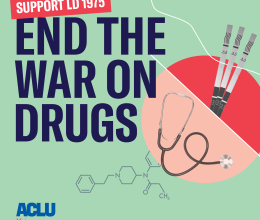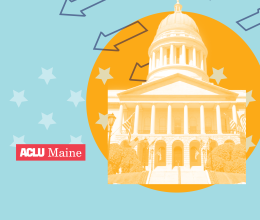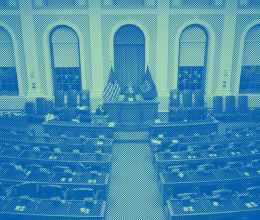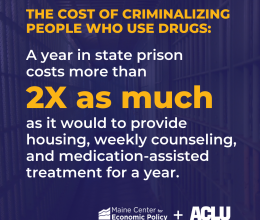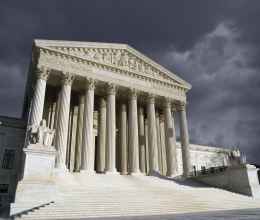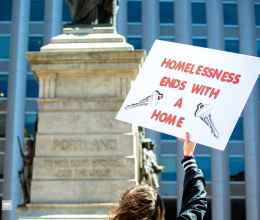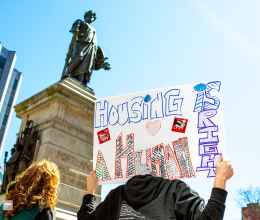No person in Maine should be punished for being a target of the failed War on Drugs or doing something that is now legal.
Part of legalizing cannabis must also include justice for the past harms caused by the failed War on Drugs that disproportionately targeted, terrorized, and incarcerated Black and Brown communities.
The racial disparities in who is arrested for cannabis possession in Maine are startling: a 2020 ACLU study found that Black people in Maine are four times more likely than white people to be arrested for cannabis possession in 2018, despite both groups having similar usage rates. In York County, Black people were more than 12 times more likely than their white peers to be arrested for simple cannabis possession – over three times the racial disparity nationwide.
Removing cannabis possession from the criminal code and expunging cannabis conviction records would provide some degree of fairness for people who were punished for something that is now legal, and for actions that were directly targeted by the failed and racist War on Drugs.
Bill Movement:
This bill originated in 2023 during the First Regular Session of the 131st Legislature. It was not passed in 2023 and was carried over into 2024 to be considered during the Second Regular Session of the 131st Legislature.
- Bill printed: 4/25/2023
- Referred to Joint Standing Committee on Criminal Justice and Public Safety: 5/30/2023
- Public hearing in committee: 4/27/2023
- Carried over from 2023 to 2024: 7/25/2023
- Work session and vote in committee: 1/10/2024 (DIVIDED REPORT)
- Ought not to pass: 9
- Ought to pass: 3
- House vote: N/A
- Senate vote: N/A
- Action by governor: N/A

